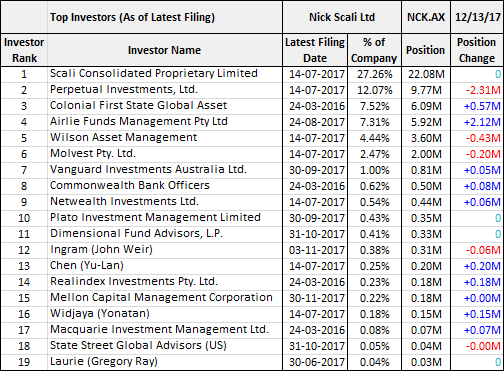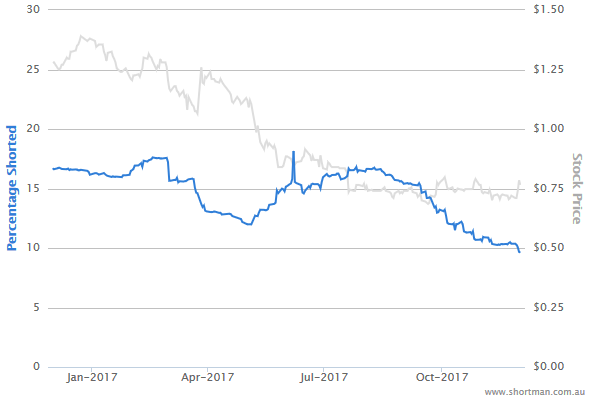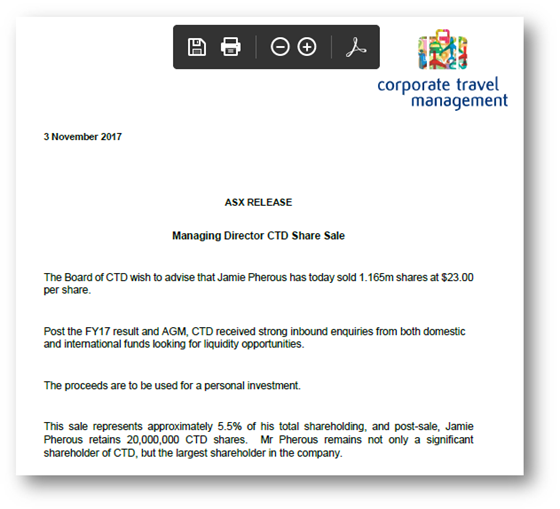Livewire Summer School: Going with the flow
There is Fundamental analysis and there is Technical analysis. A lot of investors think it ends there. But there is another body of analysis that is essential to the process which is not so obvious, analysis that any fund manager in the small and mid-cap space must master and respect.
It is the analysis of “Flow”, or in layman’s terms, knowing who is buying and who is selling a stock and when. You can do as much fundamental analysis as you like but it is irrelevant if a major shareholder in an illiquid stock is moving in or out. Some institutional holders are so large that their buying or selling can last for months and in so doing dictate the price trend for months. Puritanical Buffett sycophants will tell you that the market is a voting machine in the short term and a weighing machine in the long term. That may well be true, share prices may eventually reflect “value” in the long-term, but the weight of voters, the influence of buyers and sellers absolutely dictates the share price in the short term, and that can be a really useful piece of information when it comes to timing.
So how do you get to “know about the flow”? There are a few places to look before you decide to buy a stock. They include:
- Top 20 Shareholder movements.
- Short Selling.
- Director holdings and transactions.
- What the fund managers are doing.
Top 20 shareholder movements. You can track these through substantial shareholder notices although our very expensive Bloomberg and Thomson Reuters subscriptions allow professionals to quite easily track top twenty shareholder movements. Before you buy it is an essential check. You don’t want to run into Perpetual selling Nick Scali for instance.

Short selling. You can track those here – SHORT MAN - https://www.shortman.com.au/. Here for instance is the Shorting Trend in Myer (MYR). One of the most shorted stocks in the market for some time, until recently. Interestingly the shorts, as I write, are now below 10% having been running around 15% for most of 2017. That’s a useful bit of insight.

Directors Shareholdings - Another website for you. MARKET INDEX - https://www.marketindex.com.au/directors-transactions . Tracking Director’s activity from Director Shareholding Notices is a laborious manual process. Market Index do it for you and it is a very interesting part of the equation. You want to know (1) whether the management have skin in the game and (2) whether they are buying and selling. Ninety percent of director transactions are purchases, often through employee share schemes and option schemes. The useful stuff is when a Director makes a large sale. For instance, in November 2017, a director sold over a million shares in Corporate Travel kicking off an 18% fall in the share price. He only sold 5% of his holding. It's no big deal. We bought it for a trade in our Trading Portfolio in the newsletter were 10% up in a few days.

What the fund managers are doing. We have systems that track fund manager movements. As a private investor you can track fund managers through their monthly or quarterly investment fund reports available on their websites – For example – CLICK HERE and click on “Monthly Investment Update” –
Almost all fund managers provide these monthly reports on their funds. These almost always contain details of their top twenty holdings and if you compare one month to the next you can maybe work out whether they are buying or selling. Again, professionals track fund managers through expensive systems and subscriptions.
Fund Manager movements are a great resource for stock pickers, seeing what the big money is doing in the little stocks is essential knowledge. Watching what the fund managers are up to is an insight into their research and their research is done by people with more time, resources and experience than you.
I have a member who uses fund manager reports as his primary resource, constantly checking what top fund managers are picking and selling and using their insights and ideas to prompt his own ideas and research.
All of us in the funds management game develop a list of fund managers to follow. Fund managers that are either really good, or really big. You need to follow the big ones because they move prices, whether they perform well or not. Wilson Asset Management for instance runs around two billion dollars and hold a lot of midcap industrials. They are worth following. Others include people like Paradice, Cooper, Thorney, SGH, Colonial First State, Acorn, Ellerston, Cyan Investment Management. Many others.
And just because it is small and mid-cap investing, it is not trading. Most of those small and mid-cap fund managers must be long-term, because they simply don’t have the liquidity to get in and out.
And when they earn millions of dollars a year they can afford to dedicate significantly more dollars to the stock picking task than you do. So why not pay attention to what they do, and in so-doing, piggyback their $200,000 (plus) analysts.
Marcus Padley is the author of the Marcus Today stock market newsletter. To sign up for a 14-day free trial please click here.
3 topics
5 stocks mentioned

